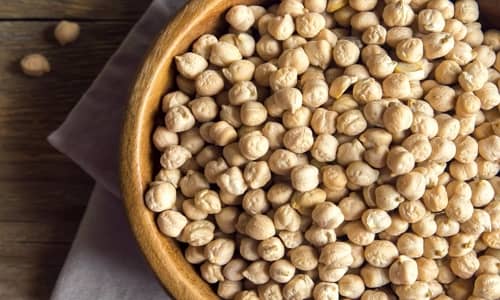6 benefits of chickpeas, calories, boiling - Beans that are good for diabetes
Chickpeas Nutrition

| Chickpeas (100g) Nutrition | |||
| Carbohydrate | Protein | Fat | Calories |
| 62g | 21g | 6g | 365kcal |
| Main Nutrition | Dietary fiber, protein | ||
| Main Benefits | Alleviating diabetes by improving constipation and controlling blood sugar levels | ||
| Side Effects | Be careful when consuming it as it is toxic when eaten raw. | ||
It is a type of bean and is called chickpea because it looks similar to the head of a chick. It is also called Egyptian bean. Unlike other beans, it has a slightly bumpy surface and is irregularly spherical. It has a light yellow color and a similar taste, although less sweet than chestnuts. It is high in calcium and vitamins and is rich in protein, making it popular as a diet food. Chickpeas are usually ground and eaten by adding them to food, or by adding them to rice and eating them as soybean rice.
2. Chickpeas Benefits

1. Diet
Chickpeas are rich in protein and dietary fiber and are low in calories. They have the ability to slow down digestion, helping you feel full longer. Protein also helps build muscle and is effective in increasing the level of appetite-reducing hormones in the body. This helps you eat less food while dieting. Chickpeas also contain a component called isoflavone. This ingredient has the function of preventing fat accumulation in the body, making it effective for dieting.
2. Diabetes improvement and prevention
Chickpeas are rich in dietary fiber and contain isoflavones. Dietary fiber has the function of slowing down the absorption of carbohydrates. Therefore, it helps suppress blood sugar levels from rising rapidly after a meal. Isoflavones also have the function of suppressing the rise in blood sugar levels, making them effective in controlling blood sugar levels. And chickpeas are rich in protein. Protein has the ability to increase insulin secretion and is effective in improving blood sugar control.
3. Cardiovascular Health
Chickpeas contain ingredients that help with cardiovascular health, such as potassium and isoflavones. In the case of potassium, it helps excrete sodium from the blood and inhibits the formation of blood clots. It also helps lower blood pressure and is effective in stabilizing blood pressure levels. And isoflavones can help not only blood vessel health but also heart health by reducing harmful cholesterol levels in the body and cleaning blood vessels.
4. Gut health
Eating chickpeas may help improve gut health. This is thanks to the rich dietary fiber contained in chickpeas. This ingredient prevents the growth of harmful bacteria in the intestines and increases the number of beneficial bacteria that contribute to intestinal health. This is effective in improving intestinal health and preventing and improving diseases such as irritable bowel syndrome and constipation. It also helps improve digestion and improves the overall intestinal environment.
5. Improvement of anemia
Anemia occurs when there are low levels of red blood cells or hemoglobin in red blood cells, which carry oxygen throughout the body. Ingredients such as iron and vitamins, which are abundant in chickpeas, prevent their levels from decreasing. So, if you suffer from anemia, consuming chickpeas will replenish iron in your body and be effective in improving your symptoms. Additionally, vitamin B6 contained in chickpeas helps produce hemoglobin, and folic acid also helps improve the health of pregnant women as well as anemia.
6. Menopausal health
In the case of women who are approaching menopause or who have recently gone through menopause, diseases such as menopause may occur due to insufficient secretion of female hormones in the body. In this case, the isoflavones contained in chickpeas help. This is because isoflavones have a similar effect to the female hormone, estrogen. Chickpeas also contain vitamin B6, a member of the B vitamin group. This ingredient can help prevent diseases such as breast cancer by acting on hormones.
3. Chickpeas How to boil
4. Chickpeas Side Effect
- Chickpeas contain a substance called purine. This ingredient may have adverse effects on people suffering from kidney stones or gout.
- Chickpeas are rich in dietary fiber. Therefore, excessive consumption may cause gastrointestinal problems such as abdominal bloating.
- If you eat chickpeas raw, you may also be consuming toxic proteins called lectins.